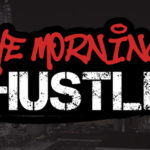UCLA class using AI to have a more engaged classroom
Written by ABC Audio ALL RIGHTS RESERVED on May 20, 2024
(LOS ANGELES) — Students enrolled in Prof. Daniel Nathanson’s business class at UCLA do not take tests or pore over books. They are not immersed in the usual 40-page case studies that often dictate the curriculum.
Instead, Nathanson has help from an AI tool to enhance interaction in his classroom. The tool gets students through real-life business scenarios in small groups, offers individualized quizzes, and leads group discussions on big business concepts.
Nathanson, the first college professor to use the Breakout Learning AI tool, says the software is used both to prevent students from using generative AI to cheat, and is incorporated into the lesson to ensure the students’ comprehension of the material.
“It enabled me to say where they need a level set, where they are and adjust my lecture to meet their needs,” Nathanson said of the learning tool, which is now used at more than 100 universities, including Yale, Cornell and MIT.
Nathanson says he plugs in what he wants the AI to teach the students.
When asked, none of the students thought AI’s grading was better than that of humans. Nathanson also doesn’t use the scores from AI when calculating final grades, but only as a way to assess their comprehension of the course material.
The business scenarios, voiced by actors, bring to life the experiences of corporate leaders like former Zappos CEO Tony Hsieh, who died in 2020, and his team, making the learning experience truly immersive and relevant.
“We want to lift up the idea of small group discussion as the primary format for learning,” said Ramit Varma, who, along with Steven Walters, founded Breakout Learning. “We’ve been learning in small group formats for thousands of years.”
Breakout Learning transcribes the spoken words and then runs it through OpenAI, which generates a summary and matches it against a grading rubric to determine an individual engagement score and two group performance scores.
The company’s website emphasizes using AI for grading and facilitating conversations, claiming it can simplify the former.
In one experiment, educators and the owners of Breakout Learning went through the course with the students during a test to evaluate the grading system. One student, Georgia, was engaged, collaborative and considerate of her colleagues. It seemed clear that she would rank among the highest scores.
However, she ranked near the lowest.
“That particular student scored the highest in group; what they saw was an engagement score, which was actually a misfire in the software that actually is not the actual metric that we use to measure quality,” Walters said.
Breakout Learning stated that after observing the session with the students, they completely removed this specific scoring system. They are now focusing solely on comprehension scores rather than engagement.
While questions linger about using AI as a grading tool, the students still support the program.
“Thus far into its development, probably a B+,” Georgia said, grading the software. “There’s always room for improvement. AI again is very new. We’re just seeing the beginnings of something great.”
A USC professor agrees with the students and believe that in the next decade UCLA won’t be an anomaly. They think most classrooms in America will use some form of artificial intelligence. Other educators, however, believe AI needs to be thoroughly tested before being used as a main teaching tool in classrooms.
“If I’m a student, and I’m like, ‘well, computers just going to grade me,’ then am I going to put forth 100% of my effort?” said USC Associate Professor Stephen Aguilar. “Or am I going to use some other AI to basically talk to their AI so it just becomes an AI talking to AI? And I think that that’s one of the dangers of doing too quickly without really understanding or figuring out what our values are relative to new AI technologies.”
Copyright © 2024, ABC Audio. All rights reserved.







